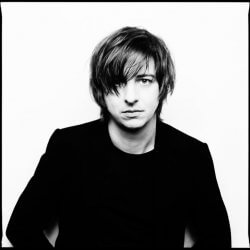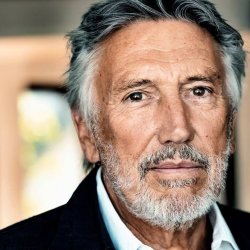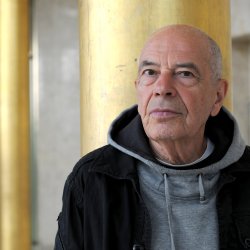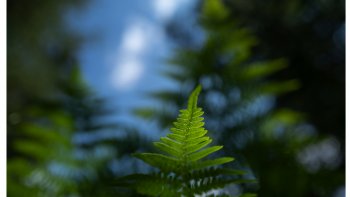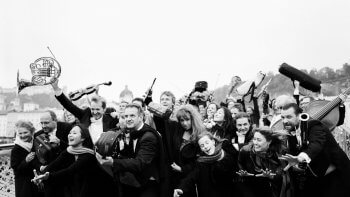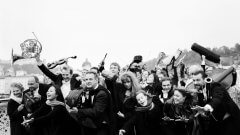No, Heinz Sauer is a giant, an “old master of the saxophone” (DIE ZEIT) and “the indomitable authority in German jazz” (Hans Jürgen Schaal) – and still one of the most creative musicians on the European jazz scene. Week after week he stands in the studio with the hr-Jazzensemble, to which he has belonged for half a century; on stage he regularly seeks variety: either in duo with Michael Wollny or his old friend Bob Degen – and in ever new projects, such as in the Berlin Quartet with his saxophone colleague Daniel Erdmann.
As an improviser and composer who combines respect for the jazz tradition with undeniable contemporary independence, he has repeatedly received awards. In 1991 he was awarded the Jazz Prize of the State of Hesse and in 1999 the Albert Mangeldorff Prize at the Berlin Jazz Festival. For his duo with Michael Wollny he was awarded the SWR Jazz Prize in 2008 and the Echo Jazz Prize for best saxophonist in 2011.
He has long been one of the active players at the heart of German jazz. In 1956 he attracted attention for the first time when he won first prize at the German Amateur Jazz Festival. As a pupil in post-war Germany, he had heard jazz on radio, this promisingly different music. It was not until he was a student (physics and mathematics in Darmstadt) that he acquired an instrument and transformed himself from an enthusiastic jazz fan to a practicing autodidact. To practice, he drives to the fields outside Frankfurt and jams soon in the evening in the cashmere and jazz cellars, also with the “Americans”.
When in 1960 the position of saxophonist in the Albert Mangelsdorff Quintet became vacant, it was Heinz Sauer, who the Frankfurt trombonist and distinguished German jazz man asked. He seizes the opportunity and becomes a member of Mangelsdorff’s band, which until its dissolution in 1978, with tours through Asia, the USA, Canada, South America, the Orient, North Africa and five recordings, is one of the most influential ensembles in European jazz. Here Sauer presents his own compositions and matures as an improviser to the congenial counterweight of the trombonist, which he also forms in the hr-Jazzensemble until his death in 2005.
The saxophonist Sauer’s hoarse and yet energetic tone is already one of the distinctive timbres of contemporary jazz at an early age. From 1968, of course, he went on tour abroad with the “German All Stars” and in 1967 – ´70 he performed with the Globe Unity Orchestra around Alexander von Schlippenbach on the festival stages in Donaueschingen and Berlin. In 1974 he founded the band “Voices” with Bob Degen, Ralf Hübner, Günter Lenz and Günter Kronberg (or after his death in 1977 Christof Lauer). In 1978 he was the focus of a tenor saxophone summit at the German Jazz Festival in Frankfurt – with George Adams and Archie Shepp.
Sauer then recorded the album “Sound Suggestions” (ECM) with Adams – with the sidemen Kenny Wheeler, Dave Holland and Jack DeJohnette. In 1980 he meets Bennie Wallace again at the Frankfurt Jazz Festival. Sauer, who as an autodidact has earned himself a decidedly European self-confidence, is now also perceived internationally, Konrad Heidkamp writes in Die Zeit: “If Heinz Sauer lived in New York, he would be in the Jazz Olympus of the saxophonists”.
But he stays in Germany, and in a duo with the pianist Bob Degen, who immigrated from Boston, he deals with the US tradition of jazz. In 1981 their album “Ellingtonia Revisited” (MPS) was awarded the annual prize of the German Record Critics. From then on, they formed the foundation of very different instrumentations: Degen not only plays in the hr-Jazzensemble, but also in the Heinz Sauer Quartet and in a trio with bassist Stephan Schmolck.
In addition, Heinz Sauer has collaborated on numerous projects with Hans Lüdemann, Stefan Lottermann, Steve Argüelles, John Schröder and Christopher Dell, among others. In the early 90s he developed the “Parcours Bleu à Deux” with the saxophonist and multimedia artist Alfred 23 Harth and combined the sounds of his quintet with synthesizer sounds at the concert in the Alte Oper. Finally he shines as a soloist with the NDR Bigband (“Ellingtonia” ACT 9233-2, with Tomas Stańko, Slide Hampton and others).
His preference, however, is the close cooperation in small and smallest instrumentations, with related spirits.
